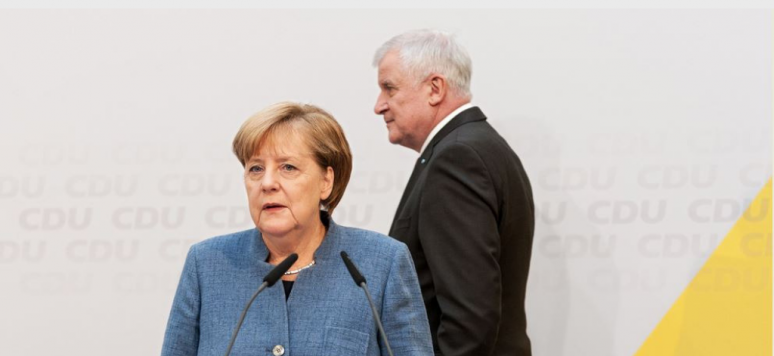Notes du Cerfa - Between political crisis and European recovery attempt: German interrogations Notes du Cerfa, No.144, Ifri, September 2018

Even though the CDU-CSU led Grand Coalition was renewed following the German legislative elections of 24 September 2017, and even though Angela Merkel was re-elected chancellor a fourth consecutive term, the country has entered a period of growing political uncertainty. The formation of a new government took much longer than after previous elections for a number of different reasons: after negotiations, the liberal party refused to join a coalition with the CDU-CSU and the Green party, the SPD was reluctant to continue in government, and, above all, the internal divisions of the two sister parties CDU et CSU, that nearly caused the fall of the new government three months after its investiture.
These recurrent crises are due to the strengthening of the national-populist party AfD that became Germany’s third party, to the reorientation of the liberal party, but also and in particular to the erosion of traditional parties that are reflecting upon their own ideological profile. The union of CDU-CSU is torn between opposing political trends while the SPD, whose crisis falls within the decline of European socialist parties, is fighting for survival.
In this context, Germany is focusing on internal political and public issues rather than on major European issues that divide the governing parties. Currently, there is no majority in favour of wide-ranging European reforms in Germany. Due to a lack of internal consensus, Berlin will therefore in the coming months not be able to take up, together with France, a leading role in the European integration.
Since 1991, Hans Stark has been General Secretary of the Committee for Studies of Franco-German Relations (Cerfa) at the French Institute of International Relations (Ifri), where his main interests are German foreign politics and German European politics.
This contents is available in french only: Entre crise politique et tentative de relance européenne : interrogations allemandes [1].
